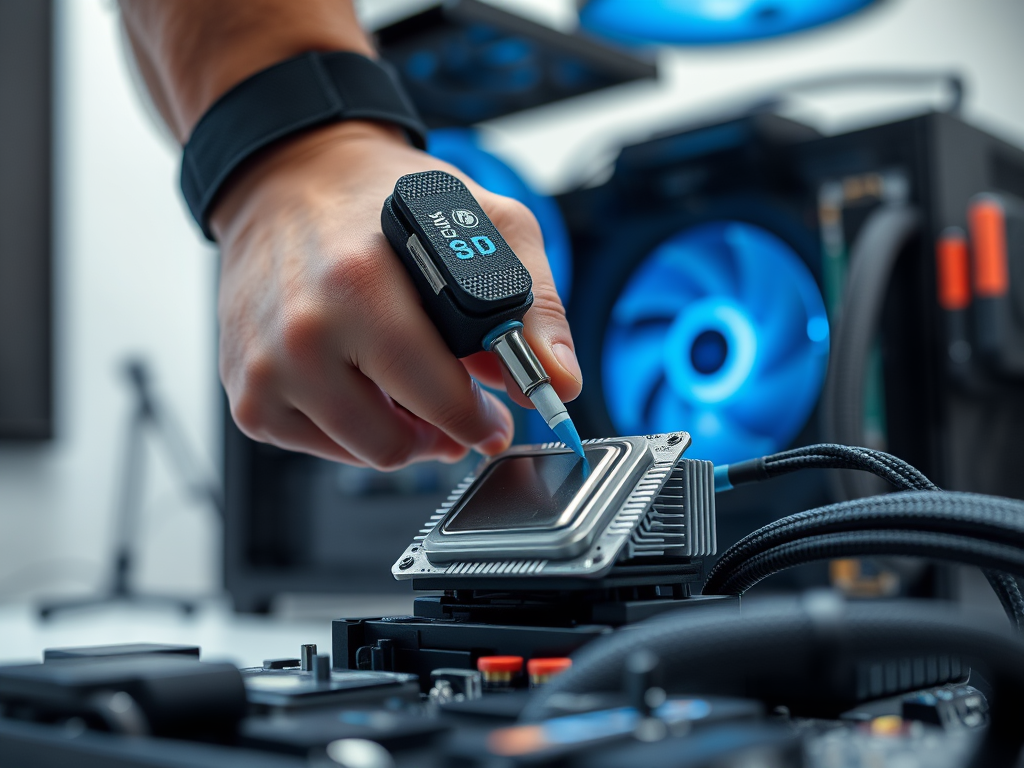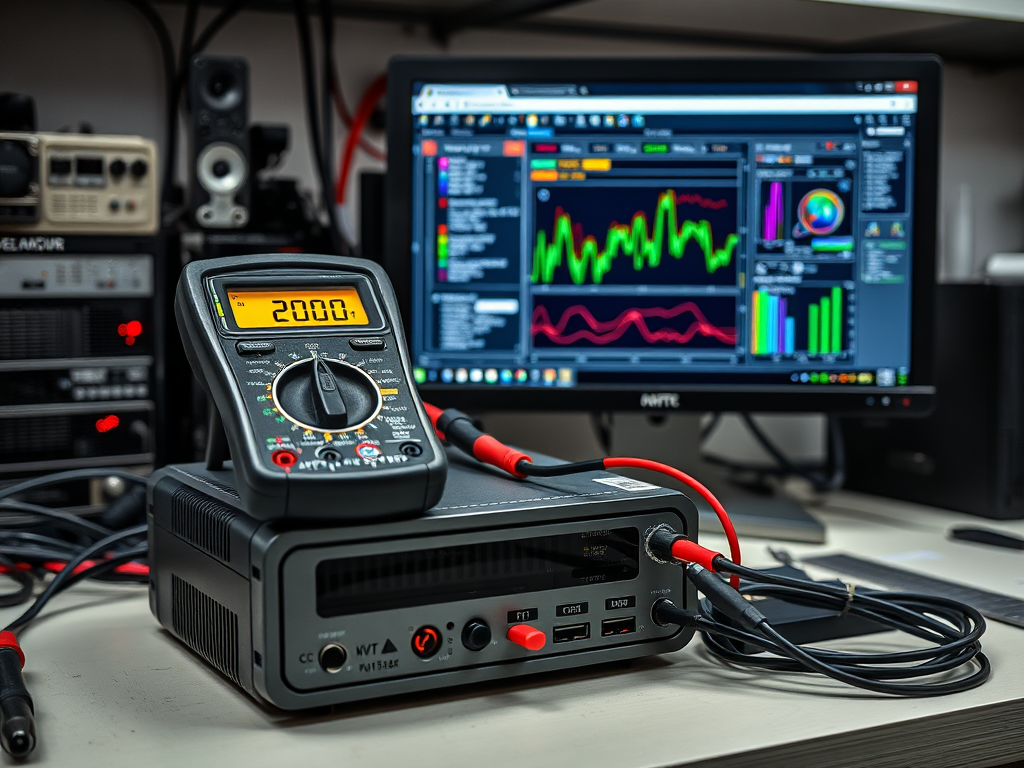Every computer owner knows that sooner or later, hardware issues will arise. Whether it’s a slow response time, random crashes, or even physical malfunctions, having the right tools can make all the difference. Imagine tackling a problem head-on instead of rushing to a repair shop, only to learn that the fix was simple and within your capabilities. Enter the world of DIY computer repairs equipped with the right arsenal of tools. Understanding the technology inside your machine, combined with the necessary instruments, enables you to manage issues effectively and efficiently. For every potential problem, there is a recommended tool—knowing which ones to have on hand is essential for any tech-savvy individual.
In this guide, we’ll delve deeper into the must-have tools for fixing common hardware problems. We’ll cover both basic and advanced tools, so whether you’re a novice or a seasoned tech enthusiast, there’s something here for everyone. When properly equipped, you can address minor fixes without incurring unnecessary costs, while also being prepared for more serious repair situations when they arise. Let’s equip ourselves and ensure our computers run smoothly for years to come!
Essential Tools for Computer Maintenance

The starting point for anyone taking charge of their computer hardware is a solid set of essential tools. These are the must-haves for routine maintenance and minor repairs.
- Screwdriver Set: Different screws require specific drivers for removal; having a set ensures you can tackle any component.
- Anti-Static Wrist Strap: Prevents damaging static electricity from affecting sensitive components.
- Pliers and Tweezers: Handy for gripping, bending, and manipulating small parts with precision.
- Thermal Paste: Essential for maintaining optimal CPU temperature when upgrading or replacing components.
- Cable Management Tools: Keeps your workspace organized and helps with airflow, reducing overheating.
Screwdriver Set
Among the most vital tools for any computer owner is a screwdriver set. Computers contain a variety of screws in different sizes and types, and having a comprehensive set allows you to efficiently disassemble and reassemble your machine. Precision is key, as using the wrong size can strip the screw heads and damage components. Look for sets that include both Phillips and flathead options to cover all your bases. A magnetic tip can also be a game changer, preventing screws from falling into hard-to-reach areas. Having the right screwdriver makes every repair task not only easier but also safer for your components.
Anti-Static Wrist Strap
Static electricity might seem trivial, but for your computer’s delicate components, it can be fatal. An anti-static wrist strap is an affordable and essential tool that provides grounding while you work. By wearing it, you ensure that any built-up static energy is redirected away from the computer’s sensitive hardware. It’s simple to use—just connect it to a grounded surface or metal object. This simple practice can save you from costly mistakes down the line, safeguarding investments in high-performance components.
Advanced Tools for Serious Repairs

As your comfort level with hardware repairs grows, you might find that advanced tools can help diagnose and resolve complicated issues. These tools can help you get to the root of hardware-related problems, leading to more effective solutions.
| Tool | Purpose | When to Use |
|---|---|---|
| Multimeter | Diagnoses electrical issues | When you’re troubleshooting power supply or component failures |
| Diagnostic Software | Checks hardware functionality | For ongoing health checks and when experiencing errors |
| Power Supply Tester | Tests power supply outputs | Before replacing suspected faulty PSUs |
A multimeter, for instance, serves as a diagnostic tool that measures voltage, current, and resistance. It allows you to check for electrical issues and can reveal problems that might not be apparent through symptoms alone. If your computer won’t boot up, using a multimeter can help determine if the power supply is functioning correctly. Diagnostic software, on the other hand, provides a user-friendly interface to perform health checks on your hardware components. It scans and reports potential issues, which can be particularly valuable for ongoing maintenance to keep things running smoothly. In more severe cases, a power supply tester can help you pinpoint faulty outlets that can impact your computer’s performance.
When to Call a Professional
For every enthusiastic DIY repairman, there are situations where it’s prudent to know your limits. Tackling complex repairs without adequate knowledge can lead to not just further damage, but it may also create safety hazards as well. Issues related to electrical systems, motherboard replacements, or soldering work are best left to professionals. Moreover, if you’re unsure about the internal components and how they interact, seeking help is advisable. Understanding when to step back and consult an expert is just as important as the tools you own. This can save you time, money, and unnecessary frustration.
Conclusion
Equipping yourself with the right tools can transform you into your own computer repair technician. Knowing which essential and advanced tools to have on hand not only saves you time and money but also empowers you to tackle issues with confidence. While DIY repairs can be straightforward with the right resources, it’s crucial to recognize when calling a professional is the better route. In navigating hardware problems, the balance between self-sufficiency and professional assistance will ultimately keep your computer running at its best, extending its life and enhancing your overall experience.
Frequently Asked Questions
- What basic tools should every computer owner have? Every computer owner should have a screwdriver set, anti-static wrist strap, pliers, tweezers, and thermal paste.
- How can I prevent static damage while working on my computer? Using an anti-static wrist strap is crucial. Additionally, you should work on a non-carpeted surface and avoid touching components unnecessarily.
- Is it worth it to invest in a multimeter? Yes, a multimeter is a useful tool for diagnosing a variety of electrical issues, making it worthwhile for serious computer owners.
- What should I do if I’m unsure about a repair? If you’re uncertain about a repair, it’s often best to consult a professional to avoid further damage.
- How often should I perform maintenance on my computer? Regular maintenance should be done every few months, with thorough cleaning and checks annually.
